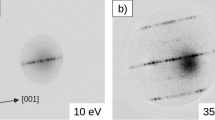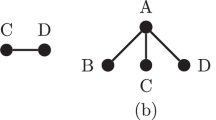Abstract
IN NATURE of July 11, Sir Flinders Petrie points out that Sir Arthur Eddington's cosmical number, 137, is nearly the well-known Byrne's number, 137129, the mantissa of the logarithm of which shows the same succession of digits. It is sometimes said to be the number which is equal to its logarithm; but actually of the number 137·129 . . we should say that one thousandth of the number is the logarithm, to base 10, of one hundredth of the number. This coincidence between Eddington's and Byrne's numbers can have no physical significance, because the coincidence depends on 10 being used for the scale of notation and the base of the logarithms. The older wisdom of Mars may have adopted scales and bases of twelve; if so, the Martian Eddington would have discovered the number e5 (11 × 12 + 5 = 137), while the Martian Byrne would have shown that log (to base twelve) 1·38e66 = 0·138e66. Raising this number two duodecimal places, we have 138·e66, in the scale of twelve, which equals 188·961 in our notation.
This is a preview of subscription content, access via your institution
Access options
Subscribe to this journal
Receive 51 print issues and online access
$199.00 per year
only $3.90 per issue
Buy this article
- Purchase on SpringerLink
- Instant access to the full article PDF.
USD 39.95
Prices may be subject to local taxes which are calculated during checkout
Similar content being viewed by others
Author information
Authors and Affiliations
Rights and permissions
About this article
Cite this article
GRIFFITH, C. The Mysterious Number 137. Nature 138, 332 (1936). https://doi.org/10.1038/138332a0
Issue date:
DOI: https://doi.org/10.1038/138332a0



